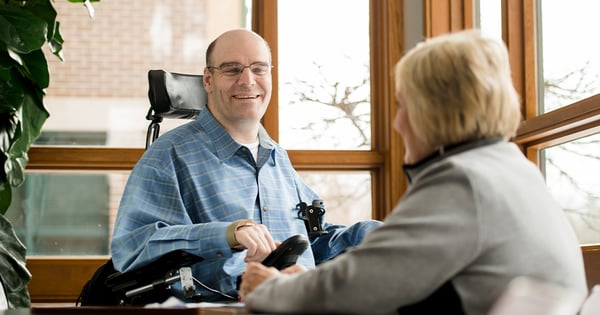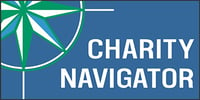 Our identities are often shaped not only by how we see ourselves, but by how we are seen and acknowledged by others. For many of us, our identities are almost entirely formed using the names or titles we’re given in our personal and professional lives.
Our identities are often shaped not only by how we see ourselves, but by how we are seen and acknowledged by others. For many of us, our identities are almost entirely formed using the names or titles we’re given in our personal and professional lives.
While we may take these names and titles for granted, individuals who are living with mental or physical disabilities are often denied the same level of basic human acknowledgement, independence, and dignity. Negative and derogatory phrases are an unfortunate reality for members of disabled communities – a reality that we all have the power to change when we champion the use of people-first language in the workplace, in our personal lives, and in our communities.
What it Is
In essence, people-first language is exactly what it sounds like: the use of phrases and personal identifiers that convey respect for individuals with intellectual, cognitive, or developmental disabilities. People-first language places the emphasis on the person, rather than their level of ability. More importantly, people-first language allows us to foster communities built on mutual respect and equitable recognition for all by prioritize a person’s individuality, dignity, and equality above all else.
Why it Matters
When individuals and organizations ardently embrace the use of people-first language, it becomes an incomparable vehicle for equity and inclusivity in the workplace, and in communities at-large. It is imperative for equal-opportunity employers to implement people-first language both in writing and in verbal communications.
While there are many ways to do this, making a commitment to choose affirmative phrases over stigmatized titles or ableist phrases is one of the best places for any organization to start:
| Affirmative Phrases | Negative Phrases |
| Person who is blind | The Blind |
| Person who uses a wheelchair | Wheelchair bound |
| Person with a disability | Crippled, Handicapped |
| Person with a cognitive disability | Slow, Retarded |
Learn More
Visit our website to find more tools for equity and inclusivity or hear about other equal-opportunity employers who are committed to promoting equity, awareness, and support for members of the disabled community.











